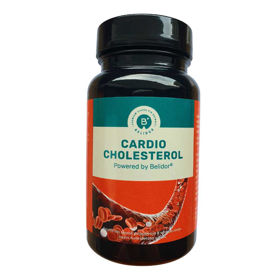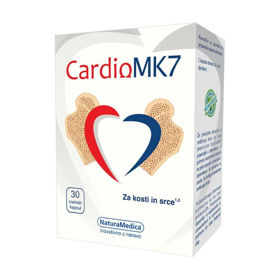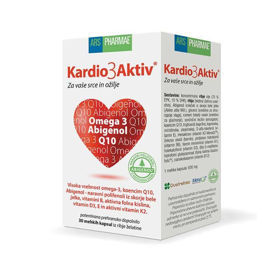Customer question:
Inflammation of the heart muscle - how do I know I have it? Prevention? Question from an anonymous customer
Pharmacist's answer:
Myocarditis is an inflammation of the heart muscle (inflammation of the myocardium). Myocarditis can cause chest pain, shortness of breath, and a fast or irregular heart rhythm (arrhythmia). Myocarditis can develop suddenly (acute), recur, or be long-lasting (chronic).
If you have been diagnosed with myocarditis or think you have symptoms of myocarditis, this can be worrying. But with treatment, most people will recover remarkably well. However, some people may have more severe complications and need specialist treatment.
Myocarditis is a medical condition in which the heart muscle, or the myocardium, becomes inflamed. This muscle contracts and relaxes to pump blood to and from the heart and the rest of the body. When the myocardium becomes inflamed, its ability to pump blood becomes less efficient. In extreme cases, myocarditis can cause blood clots, leading to a heart attack, stroke, heart damage, or even death.
Some people with early myocarditis have no symptoms, while others may have mild symptoms.
Common symptoms of inflammation of the heart muscle include:
- chest pain
- fatigue
- swelling of legs, ankles, and feet
- rapid or irregular heartbeat (arrhythmia)
- shortness of breath at rest or during activity
- dizziness or feeling like you might pass out
- flu-like symptoms such as headache, body aches, joint pain, fever, or sore throat
Sometimes the symptoms of myocarditis are similar to a heart attack. If you have unexplained chest pain and difficulty breathing, seek emergency medical attention.
Possible causes of myocarditis can be:
- viruses
- bacteria
- parasites
- fungi
- gastrointestinal infections
- chemicals or radiation
- other inflammatory diseases
- certain medicines or illegal drugs
Treatment will depend on your symptoms and the cause. Your doctor will discuss the best treatment options with you.
Treatment may include:
- painkillers/analgesics for chest pain
- antibiotics if the cause is a bacterial infection
- medicines to relieve inflammation
- rest
Your doctor will want to monitor your progress and may ask you to return for regular check-ups. It is essential to see your doctor even if you feel well. The visits will help you get the support you need.
There is no specific prevention for myocarditis, but the following measures to prevent infection may help:
- wash your hands regularly
- avoid close contact with sick people
- avoid risky behaviors such as unprotected sex and drug use
- get the recommended vaccines
Interesting reading: Ovarian inflammation
Interesting reading: Inflammation eyes home remedies













